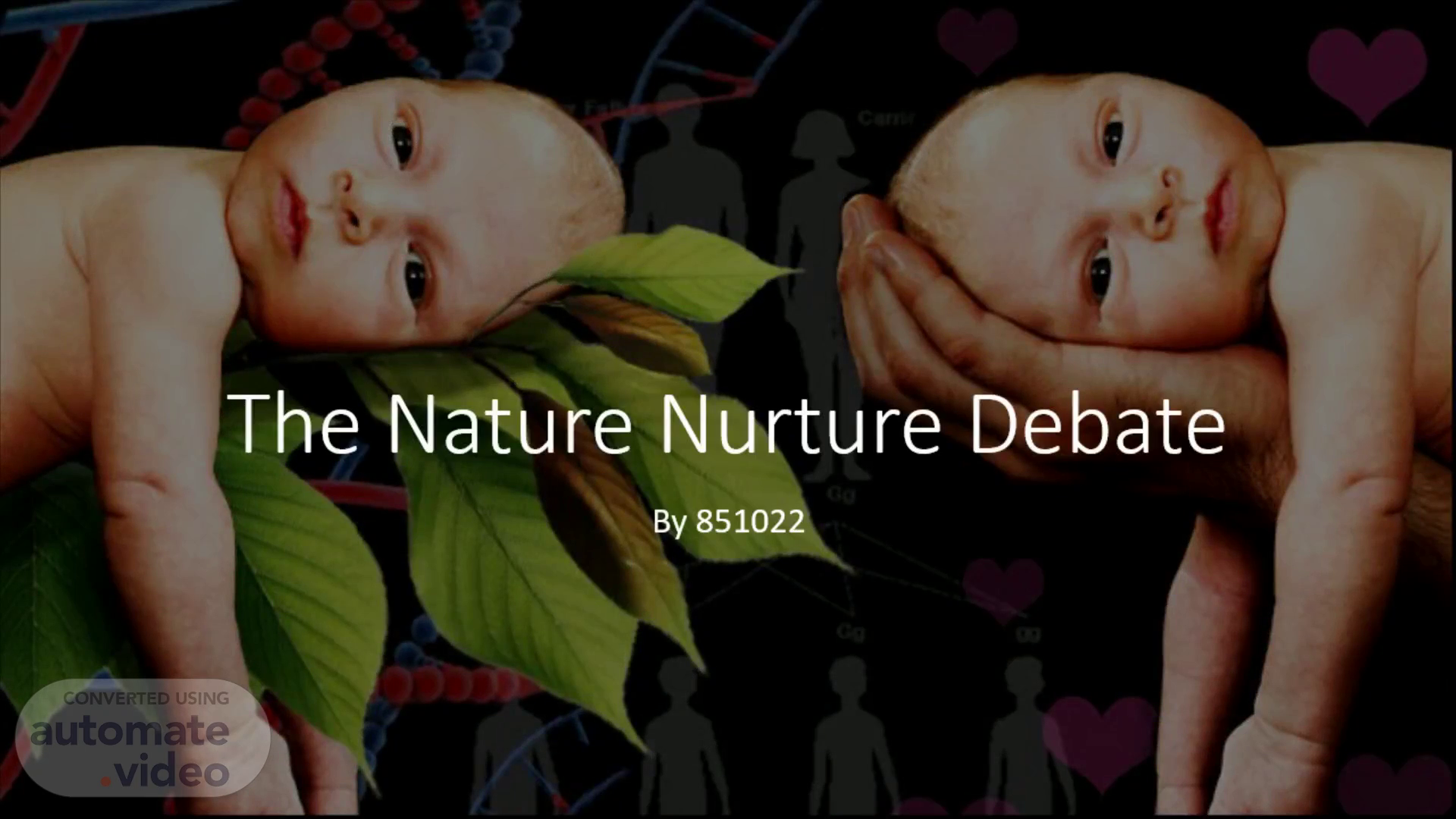
Page 1 (0s)
By 851022. The Nature Nurture Debate. A picture containing person, indoor, baby, doll Description automatically generated.
Page 2 (9s)
The Nature-Nurture Debate has changed. What was initially about whether human characteristics were innate or acquired has now developed to discussing how genes and the environment interact early as the 1960s (Devlin, 1997) Mainly as a result of twin studies and heritability.
Page 3 (24s)
Heritability and Twin Studies. meta-analyses of twin studies across 14,558,903 twin pairs 50% of personality is attributable to genes Polderman et al. (2015) Similarly Turkheimer proposed that all traits are heritable (Turkheimer, 2000; Turkheimer & Gottesman, 1996) (Barlow, Sherlock, & Zietsch, 2017) (Waller, Kojetin, Bouchard Jr, Lykken, & Tellegen, 1990.
Page 4 (42s)
Current Nature Nurture Debate. Gene --> environment (Yuan et al., 2021) Environment --> gene (expression) Environment --> gene (over time) Is it even worth discussing at this moment in time? complexity of the gene + environment interactions Heritability estimates are cross sectional, only consider the variability of environment + genotype at one point in time (Turkheimer, 2011 ). E.g height of the western world (Silventoinen et al., 2003 ),.
Page 5 (1m 2s)
What is the purpose of science and how can philosophy help us understand this.
Page 6 (1m 22s)
Utilitarianism. Purpose of science is for social utility Assigns morality to knowledge Aims for a net positive outcome Utilitarians would support intergenerational research Stanford Encyclopedia of Philosophy (SEP; 2022).
Page 7 (1m 35s)
Popperianism. Negative utilitarianism --> state should aim to minimise suffering instead of promote happiness People can achieve happiness via personal means Science progresses through critical analysis Society should progress in the same way, individuals should maintain the right to scrutinise the state to encourage progress Science can act as a tool to develop informed decisions about what terms the state should be scrutinised on Popperianism supports research of intergenerational effects for informed understading under the context that it minimises human suffering SEP (2022).
Page 8 (2m 5s)
The main point. Both support research of intergenerational effects for different reasons under different constraints Utilitarianism --> may rid people of disease and achieve a net positive outcome, is okay as long as net positive outcome is greater, regardless of the margin Popperianism --> allows for research to encourage informed decision-making as long as sufferring is minimised SEP.
Page 9 (2m 25s)
Criticisms. Utilitarianism ignores human complexity Both approaches cant explain who we should feel more inclined to, our current generation or a hypothetical future one Both approaches make humans moral arbitrators but humans are biased.